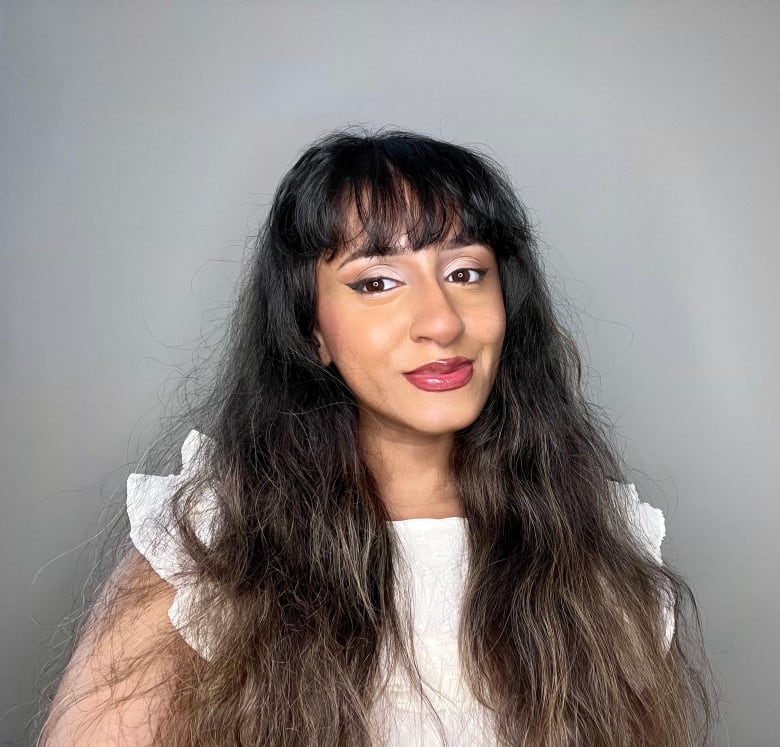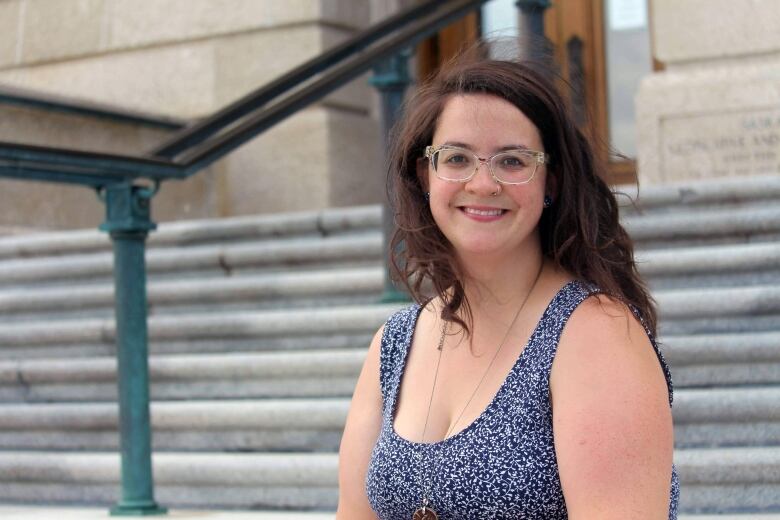The meaning of feminism has changed over the years — from fighting for rights to vote and own property, to equality and anti-discrimination, to now a push for more inclusivity beyond white, cisgender women.
On Tuesday, one day before International Women’s Day, CBC Saskatchewan’s Blue Sky hosted a discussion on feminism in 2023. Guests shared their unique experiences and spoke about what feminism means to them.
“When I had a same sex partner in the late ’90s and was in the process of coming out, the personal definitely became political,” Nicole White said on the program.
“The fight isn’t over yet. There has been an active attack on particular marginalized communities and it’s been really disconcerting. We have to constantly be looking around the table and asking ourselves who isn’t here and why aren’t they here and creating space for them and amplifying those voices whenever possible.”
White said her version of feminism is different as it was 20 years ago and hopes it will continue to evolve.

White founded Moontime Sisters, an organization that supplies free menstruation products to people in Northern Saskatchewan.
“A menstrual product that I would pay $5 for in Saskatoon could be upwards of $20 in northern Saskatchewan communities, and that is absolutely considered a luxury product for a family,” she said, noting access and equity remain as hurdles.
After consultation with two-spirit elders, White said the organization has started the process of changing its name to Moontime Connections.
“To honour two-spirit and trans menstruators in Canada and recognizing that we can still honour the sisterhood and the kinship when it comes to menstruators across the province. We never ever want to turn someone away with the use of language that’s not inclusive.”
She is now the project leader of Enough Already, an organization that challenges sexual harassment in the workplace, and said the situation with gender-based and sexual violence is still fairly dire.
Responding to a Blue Sky listener’s question about ageism, White said more safe spaces should be created for female seniors.
Blue Sky48:53What does feminism look like in 2023?
The meaning of feminism has changed over the years — from fighting for property rights and the right to vote — to equality and anti-discrimination — to a push for more inclusivity beyond white, straight women. Today on Blue Sky guest host Shauna Powers asked – What does feminism look like in 2023? We were joined by Nicole White, Tasnim Jaisee, Cecilia Rands and Yashica Bither.
‘Equity more than equality’
Yashica Bither says she faced microaggressions throughout elementary school in Regina, and found feminism in high school.
Bither is now women’s centre co-ordinator at University of Saskatchewan Student Union. She spoke about intersectional feminism, which looks at how different elements of a person’s identity — their race, gender, orientation and others — inform their experience.
“My definition of intersectional feminism is looking at equity more than equality. Feminism is all about equality. That intersectional lens allows all members of the community to benefit from that and not just a particular group,” they said.
“We do need an intersectional lens to feminism. White folk are not the only people who should be at the forefront. Especially as Saskatchewan gets more diverse, we need to acknowledge that these voices need to be amplified.”
Bither said the centre offers peer support, menstrual products, pregnancy tests, contraceptive products and a listening ear.
“Allyship is important to the movement, especially to the trans folks,” Bither said, noting in many such movements, Black trans voices led the fight.
“They deserve safe spaces as much as we do. Trans people are not confused.… They are who they are and they need to be listened to.”

Tasnim Jaisee agreed, saying trans women are women and that everyone needs “to protect our sisters.”
Jaisee is a USask undergraduate student in political studies and women’s and gender studies, with a research interest in intersectional feminism and critical disability studies.
She said she grew up facing a combination of “sexism, racism and ableism,” as she is a woman of colour who uses a wheelchair.
“Pop feminism is the first step of girls empowering girls, women empowering women. It’s a feel-good version of feminism. But moving into intersectional feminism is a bit different, because it is essentially becoming more critical of the system of power.”
Jaisee said intersectional feminism unpacks how identity has layers, like how women of colour experience racial and gender-based systemic barriers.
“That intersectional layer is very, very critical to understanding some of those unique experiences.”

Jaisee’s mother was a survivor of the Bangladesh Liberation War.
“Her feminism was different from mine. Her feminism was to seek opportunities of education and that again was quite revolutionary.”
Disability activism work within intersectional feminism has helped Jaisee feel more included.
“My racial and disability identities have impacted everything I do. Intersectional feminism makes me realize that the systemic barriers I face are not my fault.”
She said women mentors — like her professors, supervisors and bosses — have been pillars of support.
‘The only way forward is with compassion and empathy and love in our hearts’
Cecilia Rands said growing up with a single father who identified as a feminist helped her immensely with embarking on her own feminist journey.
Rands said she realizes the privilege she has, being a white cisgender woman.
“Having those privileges never means you can’t fight for the rights of others. My father always worked to be an ally and that gave me a good push,” she said.
Rands’s work focuses on education around gender based violence and allyship, and involves working with men and boys to make them realize their role in helping end oppression and violence.
“The only way forward is with compassion and empathy and love in our hearts,” she said.
“We can’t expect men and boys to take up that mantle if they don’t feel that love and compassion and acceptance just as much as we want women and everyone to feel.”

Rands, who has also worked at a Planned Parenthood, said demystifying abortion is also very important.
“Abortion is health care. It’s that simple. Saskatchewan has a really tragic situation of access to reproductive health care,” she said.
She said access to medical abortion is not equitable in the province, especially for communities in the northern communities.
She also spoke about violence against women.
“As many strides as we’ve made as women and feminists, particularly in Saskatchewan, the rates of intimate partner violence and gender based violence are still incredibly staggering and serious. There’s still a lot of work to do,” Rands said.
“It’s hard for me not to worry about my daughter’s future in terms of safety.”





More Stories
Fair share: the right office solution can take finding the right partner
Ontario faces crew shortages, aircraft issues in fight against wildfires | Globalnews.ca
Refugee attends open house at Downtown Eastside affordable housing facility – BC | Globalnews.ca